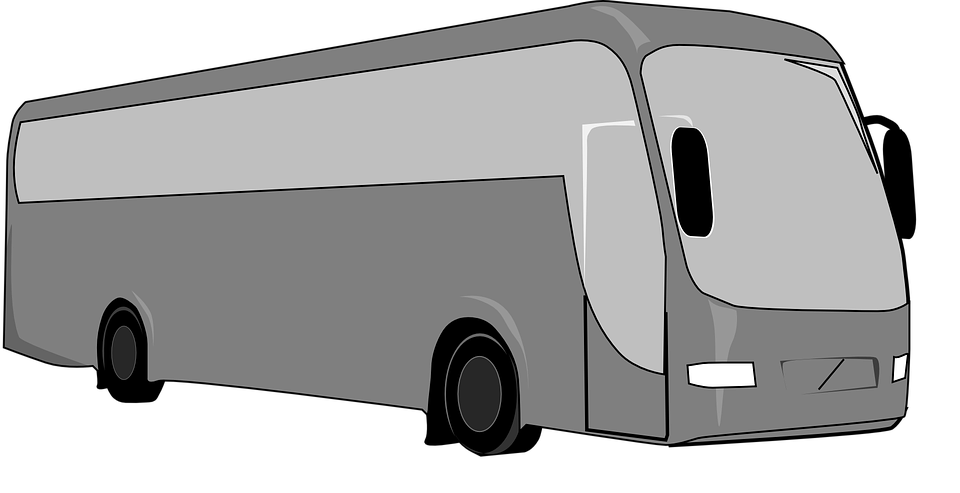For The Transit Fans: Industry Perspectives: Unions
Workers in the Transportation Industry often face unfair treatment with regard to simple labor practices that in other industries are not an issue.
The Two Largest Representing Transportation Workers:

Amalgamated Transit Union
Founded: September 15, 1892
Main Office: Washington DC, United States
Affiliation: American Federation of Labor and Congress of Industrial Organizations
(AFL-CIO)
Additional Councils: Canadian Council organized in 1982 to represent transportation workers of the Toronto Transit Commission (Local 113)
Workforce: Transit Employees, School Bus Drivers, Subway Operators, Mechanics

International Brotherhood of Teamsters
Founded: 1903
Main Office: Washington DC, United States
Affiliation: Change to Win Federation, Canadian Labour Congress
Additional Councils: Teamsters Canada
Workforce: Blue Collar Workers, Truck Drivers, Taxi Drivers, Professional Chauffeurs
Some Common issues brought about in Labor Disputes for Bus Drivers are:
Pay: As is the case in most Labor Disputes, Pay is usually at the top of the list. Bus Drivers typically receive pay based on seniority. Drivers who have been at the company the longest are paid more and usually have first pick of route assignments and any available overtime work. Some Cities have Privatized their public transport network. The way this works is the public bus service is contracted to a Transportation company to run day to day operations with public taxpayer money. The issue this creates is the transportation company has a vested interest in keeping as much of that money as possible. Because the drivers work for the private company and not the government pay is usually lower and raises are far less common.
Bathroom Breaks: It sounds juvenile to argue about when one has the right to go to the bathroom but bus drivers are in a unique position because of the fast paced nature that is public transportation. Bus Drivers spend anywhere from 6 to 10 hours behind the wheel driving a route until their clock out time. Public Transit Buses are not equipped with restrooms. This means that during a bus driver's shift, he or she must request permission to use a restroom (like a kindergartner). The dispute from the company point of view is that a public transit bus cannot be taken off of a route for any length of time because of the potential for delays in service, Vandalism or Theft of a Public Transit Bus etc. When Bus Drivers take bathroom breaks they usually must "Find" one first. Being a bus driver is not like a desk job where the bathroom is down the hallway. Most usually find a restaurant or store that will allow them to use it. (which takes more time) The Unions have successfully lobbied for bus drivers to have the right to request bathroom breaks at anytime during a shift. It was not uncommon for bus drivers to pee in bottles while driving because they weren't allowed to go to the bathroom. With women making up a large percentage of bus drivers in recent years the unions have to remind transit operators to allow them extra time.
Sick Leave/Call Outs: Again, Driving a transit bus is not like a normal desk job where if you are sick you can keep tissues at your desk along with a warm cup of tea and still get your work done. When bus drivers are sick they are not able to focus on the road while operating their vehicles. Bus Drivers come in contact with hundreds of people a day and it is not common for bus drivers to catch colds frequently. Federal Department of Transportation Regulations prohibit the use of drugs and cold medicine because they can make Bus Drivers drowsy. Bus Drivers not being allowed to take cold medicine while coming into contact with the general public every day means they get sick more than average. Most transit agencies have an attendance policy which works off of a point system (where points are bad). Acquiring a certain number of points means that a driver could be fired or suspended. A bus driver calling out sick at my company received 2 points. The company would fire you after 10 points and 1 point could be removed for 30 days of attendance. This policy forced drivers to come into work while sick because they were afraid of being fired for calling out sick. This is common among many transit agencies. A sick bus driver is not a safe bus driver because he or she cannot focus on the road. The Unions have fought to alter or abolish call out penalties in many transit agencies attendance policies.
Hazardous Conditions: Every transit agency has its own protocol dealing with bad weather, some transit agencies do not shut down even during hurricanes or heavy snowfall. This ignores the fact that in some types of weather driving a transit bus is simply not possible. Agencies and unions have worked out agreements in which a set system of parameters dictates if bus service should be suspended in the interest of safety. When bus drivers are forced to drive in undrivable conditions it increases the chances of an accident. Many agencies did this on purpose to force their own drivers to have accidents so they would have an excuse to fire them. Some of the local unions have agreements that allow bus drivers to decide when conditions are not safe, they are allowed to pull the bus over and wait for the weather to clear. Others have bargained for extra pay for driving during bad weather conditions.
Bus Driver Attacks: Bus Drivers are attacked in every major city every day. Driving a bus and coming into contact with the public comes with a degree of exposure. But no bus driver goes to work expecting to be confronted with a gun or a knife. Simply put, its not in the job description. All transit buses are equipped with cameras and recording devices. But this does not prevent attacks on bus drivers. The most common reason bus drivers are attacked is when a passenger boards a bus and does not pay the fare. When asked to pay, some people are willing to attack bus drivers for a free ride hoping the driver doesn't want a confrontation. Sometimes attacking people is part of a gang initiation and bus drivers sometimes taxi drivers are targets. Transit Agencies expect their drivers to be friendly and courteous, its hard to be friendly and courteous in a neighborhood where bus driver attacks are fairly common. One driver in my area was attacked so badly he is no longer able to eat solid food. The Unions have put pressure on the Transit agencies to install Plexi-glass barricades which separate the driver from the passengers. Police take these attacks seriously because if a bus driver is attacked while he or she is driving. Not only is the driver at risk, the passengers on the bus are at risk as well as the public because the driver cannot drive the vehicle safely with someone attacking them. The transit agencies have been reluctant to install the barricades (which are fairly common in Europe) because it erases the "Friendly Bus Driver" image they wish to portray. It eliminates contact with the public, and forces the agency to acknowledge that sometimes the public we are supposed to serve is the problem. Female Bus drivers working late shifts driving a night bus route are extremely vulnerable to this type of attack. Most buses are now equipped with a silent alarm which alerts the police to an emergency on board.
Bus Maintenance: Transit Buses spend an extremely long amount of time on the road. Wear and tear on transit buses is something that must be constantly kept in check because of the safety risks. An improperly maintained bus can but bus drivers in emergency situations that could have been avoided if the bus had been maintained properly. Some agencies do not hire enough mechanics to properly service its entire fleet. Buses may spend only a few hours in the yard before they go back onto their routes. For example, if bus service ends at 3 AM and begins at 6 AM the buses are only idle for 3 hours. That is not a long enough time window for mechanics to properly inspect and maintain bus fleets. This causes them to abandon their ASE Certification for "quick fix" tactics. Last winter nearly 20 buses at my company ran out of fuel while out on the route because the mechanics did not have enough time to fuel them. It is frequent for buses at my lot to overheat because they simply have no antifreeze. Personally speaking i remember making a right turn in my bus and my steering wheel was suddenly rendered inoperable. When the mechanic reached me he told me my bus had no power steering fluid. These types of mistakes can cause serious and catastrophic accidents. Unions have fought for transit authorities to have extra capital to hire additional mechanics.
Keep these things in mind the next time you wonder why your bus driver doesn't give you a smile.
Support your Local ATU!!! WE ARE ONE!!!
-
 2
2




0 Comments
Recommended Comments
There are no comments to display.
Create an account or sign in to comment
You need to be a member in order to leave a comment
Create an account
Sign up for a new account in our community. It's easy!
Join the herd!Sign in
Already have an account? Sign in here.
Sign In Now